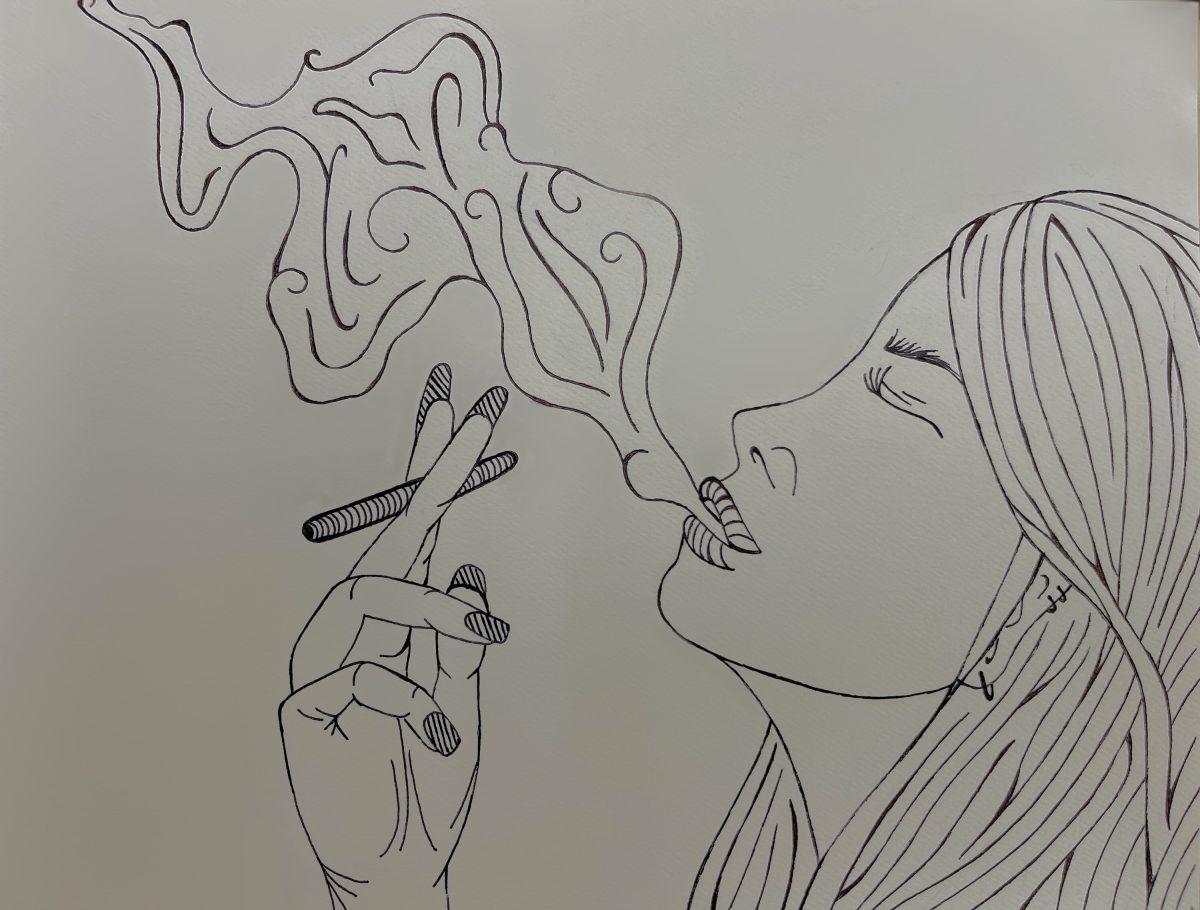by Cate Guempel, editor
Without opening my eyes, I reach out my hand until I find my phone and turn on the alarm reminding me that soon I will have to leave my bed for bright fluorescent lights and another day to fail expectations. Mornings like these, my body feels too heavy to lift and every movement takes more mental effort than I feel I am capable of. Class starts in 15 minutes and I finally muster enough motivation to throw on some clothes and makeup.
Days like these I am quieter than usual, as if it takes too much mental energy to insert tones of cheeriness in my voice and the more I speak the more obvious this heaviness inside me is. I deal with depression and anxiety on a daily basis as a reaction to years of verbal and emotional abuse in my home life. On my best days, depression and anxiety serve as a reminder to appreciate the little moments because some days the negative thoughts are so loud that they are all I can see. Other days, I fumble through every interaction of the day until I can return to the safety and solidarity of my room. My grades, throughout high school, are not as high as I believe they could be and often I feel that my teachers only see my lack of motivation as laziness or mediocrity rather than effects of perpetual stress. It is safe to say that the stress factors of my life outside of school have impacted my academics in both my behavior at school and the work I turn in, and I am not the only one.
Senior Bronte Hoefer said, “I have an extremely hostile home environment. Growing up subject to abuse and an unstable family life had crushing effects on my development as a kid and it reflected in my school work as well.”
Every student is a result of their experiences that shape them, and for some, these experiences are not a comfortable topic for school staff to discuss. Personally, the only times in school that I talked about difficulties at home, was through a couple of school projects. I knew my teachers would most likely be understanding to my situation and it would only help my academics, but at a time where I didn’t believe I was worth the air I breathed, explaining that to others was and continues to be one of the most difficult things I have done.
Hoefer said, “Some teachers care so much about their students, I’ve cried in class multiple times because they’ve expressed care or support for me. It did help me a bit with my academics, but mostly the benefit I’ve been given is that I know that I’m supported and that there are people who are honestly proud of me and how strong I am. Kids with abusive families don’t get that from home, and to hear teachers say they care about you and that they’re proud of you is life changing, believe it or not.”
The stigma on mental illness is a real issue that affects a large number of teens. More likely than not, someone you know has a mental illness. For something so common it seems to be rarely discussed with an unbiased dialogue. Mental illness has physical symptoms, but they are less noticeable than most physical ailments and this makes mental illnesses almost invisible on the outside which allows people to question its existence at all. This hesitation to believe those that are ill can be incredibly damaging. A lack of knowledge on these illnesses leads to many misunderstandings of the people affected and often results in a sense of shame for being ill. People in my life have told me that they believe that mental illness is a choice and that anyone can choose to be happy or that I am just making it all up as a way to manipulate and control those around me. With so many people who didn’t believe me and my mind already full of negative thoughts and self doubt from my depression and anxiety, I believed them for a long time and some days I still do. Since then, I have somehow found a will to slowly nurture my self worth and look for the good in myself. For anyone who relates to my experience, your illness is not your fault, you are worth it and you always have more strength left.
People still try to blame me for the mental illnesses I struggle with, but I have realized that I cannot hate them for their ignorance. The only way to break the stigma is through knowledge and beginning a honest dialogue on mental health in your community. Focusing on building empathy and compassion for others unites people rather than categorizing others based on how different they are from us.





































